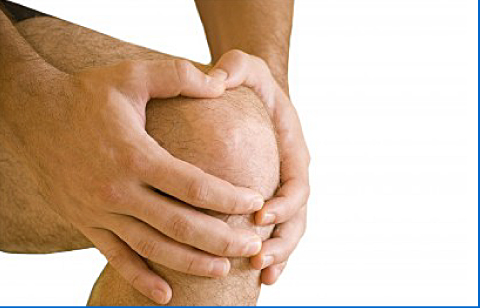Cartilage (Meniscus) Damage
The menisci are crescent-like elastic structures sitting on the top surface of the shin bone between the femur (thigh bone) and tibia (leg bone) - of the knee joint. There are two menisci, one in the outer side of the knee (Lateral Menisci), and another in the inner side of the knee (Medial Menisci). They act as wedge-shaped shock absorbers between the bones. Their role is very important in terms of load distribution within the knee during weight bearing.
The most common cause of meniscal damage is an acute twisting injury of the knee. We see this frequently amongst the sport injuries, but it could happen to anybody on various scenarios (e.g. twisting the knee and fall on slippery floor, fall downstairs, kicked on the knee etc). During this twisting manoeuvre, the meniscus is getting “grinded” between the two bones of the knee and it tears. But also, a meniscal tear may happen without a significant injury in older people, which their menisci are already weakened by the pre-existed process of wear & tear (degeneration) changes in the knee.
The patient is complaining from pain and discomfort usually in one side of the knee. This is associated occasionally with some knee swelling, clicking and even giving- away feeling in knee. In some other cases, the torn part of the meniscus displaces within the knee joint and gets “stuck” between the thigh & leg bones causing locking of the knee. In this particular case, this condition should be treated with a degree of urgency.
The diagnosis of torn cartilage (meniscus) is made on clinical examination by the expert. Further tests like x-ray and MRI scan may be needed to confirm the diagnosis as well as to role out any other damages to the knee.
Treatment
Meniscus has a poor blood supply, which means that any tear is very unlikely to heal by itself with time. Therefore, when the torn meniscus is causing a lot of pain and trouble to the patient, the most predictable and recommended line of treatment would be the surgery. This is very commonly performed by keyhole (arthroscopic) surgery. Back...
The surgical procedure options mainly are:
1. Arthroscopic (keyhole) Meniscal Trimming
The first part of this operation is to assess the type of the tear (i.e. size, shape, site etc). If the torn fragment is not repairable, then it is best removed using keyhole technique and instrument in the second part of the same operation. This operation generally can be done as a Day-Surgery procedure (though occasionally an overnight stay is required). The recovery from this operation is relatively swift, ranging from few days to couple of weeks. Mr. Ayoub will assess your condition, your work and all other relevant activities in order to give you a more accurate estimate of your particular recovery and return to daily activities.
2. Arthroscopic (keyhole) Meniscal Repair
In some cases, and after a full assessment of the damage as described above, the meniscal tear may be found to be repairable. The repair involves stitching the torn part of the menisci back where it should be. The procedure is performed using keyhole methods and will normally end up with some minor skin scars around the area of the repair. It is important to protect the repair by keeping you non-weight bearing and using some walking aid. This is necessary to give enough time for your body to heel (knit together) the tear. Therefore, the recovery is slower than if the torn fragment is excised (Option 1 above). But in the long term it could be more beneficial as there are some evidences showing that successful Meniscal repair may delay (or even prevent) the onset of arthritis in that knee.
The operation can be done usually as a Day-Surgery case. Further detailed information would be provided during the consultation with Mr. Khalid Ayoub. Back...
|



